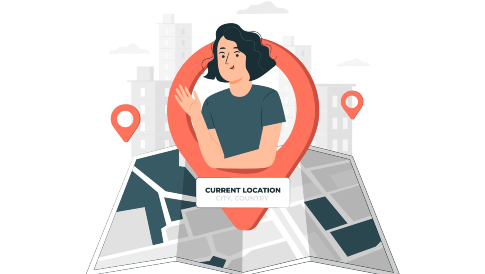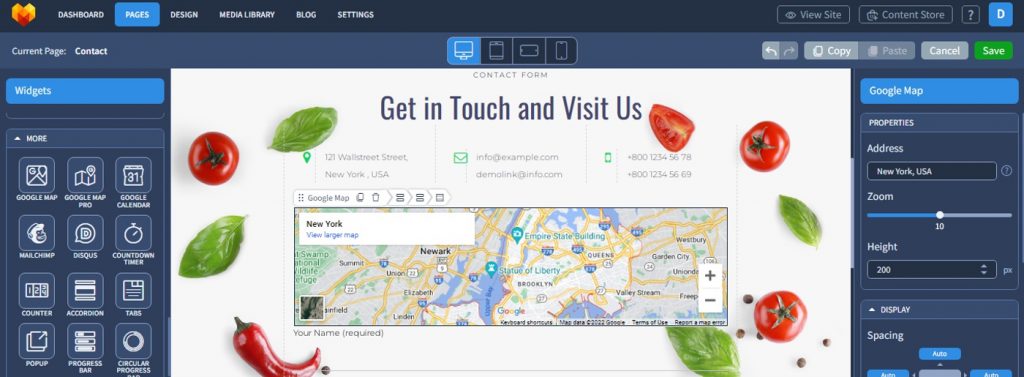Location data is an essential aspect of web development these days. It helps a business or brand gain competitive advantages over competitors and generate more sales just by using users’ location information. Underestimating users’ location details and information and not using them on your business website or application means you are ignoring customer needs by showing them irrelevant search results. This causes a high rate of users bouncing away from your brand. In this article, we will explore how different businesses and industries are using location data to deliver a great user experience across their websites and apps.
Classified Websites
Classified websites like OLX are among the best ways people buy and sell stuff. Buyers usually look for the products or items nearby when they want to buy something they need. Such websites use the exact location data of users with the help of IP Geolocation API to present users with the most relevant classified ads based on their location.
Online marketplaces provide popular and relevant results to users within a particular area when they visit the website for the first time. They also serve to return users’ ads based on their location information and behavior signals from their past visits. By using location information, a classified website’s recommendation algorithm provides the most relevant results to keep users engaged and convert quickly.
Job Search Websites
Usually, job seekers search for particular roles and positions in a particular locality of geographic location near the residence. When they search for a job on the website, the recommendation algorithm extracts the location information from the input text. Then, an API helps the algorithm get the user’s location details and the potential role in providing users with the most relevant results. As a result, they can better find the best-matched positions based on their desired locations. Job seekers prefer job search websites that use location information and data to deliver relevant results without wasting time.
Food Delivery Businesses
In this digital era where consumers are impatient, food delivery businesses leverage location data to find the best and nearest matches for user searches to deliver the food faster. Some food delivery apps also provide a map feature so users can easily find the nearest restaurant and choose delivery pick-up points. This not only eliminates the use of third-party maps but also provides consumers with the best matches based on their current location. Food delivery businesses also use location data to determine the distance between the user’s location and the restaurant to calculate accurate delivery charges and estimated TAT for the order delivery.
Real Estate Websites
Location is a key factor when it comes to finding a new home. This is the reason real estate websites these days use location data to show their users ideal home locations based on their ideal locations. Some real estate websites are functional with integrated maps so users can easily go through a locality or geographical location to find the best place for a new home from the comfort of their bedrooms. This also saves time and money in terms of not traveling to the location physically.
Travel Websites
People these days prefer visiting travel websites to find the best vacation points and destinations when they want to travel with family and friends. This helps them plan professional tours and family trips accordingly. Travel business websites use the users’ location details to help them find the best locations and accommodations within a particular locality or location. This also gives users a clear idea of how much they will need to travel to reach the chosen destination. For example, if you’re planning a road trip to Florida and searching for an RV rental in Orlando, these sites can show top-rated options nearby, enhancing the planning process for a Florida getaway. Not only this but some travel websites and apps also provide ‘search as I move the map’ to offer a dynamic search experience to help them plan vacations in the best way possible.
Weather Forecasting
Extreme weather conditions can directly impact day-to-day life and other daily operations. A weather forecasting website or app that uses users’ real-time location can provide hyper-local weather forecasts of a particular territory area. This enables users to be aware of current and upcoming weather conditions before they plan vacations, go on vacation, or visit abroad. Weather forecasting websites and apps use geolocation data to offer users weather updates with greater accuracy. Some apps also send notifications when there is an extreme and sudden change in local weather.
Entertainment Sector
The use of geolocation data has dramatically changed the gaming and entertainment sectors. Pokemon Go is a perfect example of this. This game uses the real-time location of users. Gamers use the gaming app to explore their surroundings while on the go, using their mobile devices like smartphones or tablets as a map and viewfinder to find and collect Pokemon characters. Each level or place of this game is connected to real-world locations that players use to discover required characters. Not only this, video-sharing platforms like YouTube and TikTok also use users’ locations to present them with content relevant to the location and trending in the user’s current location.
Fitness and Healthcare
Since maintaining a healthy lifestyle is difficult in this technology-driven world, fitness apps using location data make a lot easier to stay fit and healthy. Such apps offer location-based fitness tracking features. Fitness trackers help users keep track of the distance covered during the walk, number of steps, heart rate, and other health conditions in real time. One can also connect a fitness tracker with a smartphone to sync fitness data and routine activities across devices without facing trouble.
Conclusion
In this modern age, location data powers many apps and websites to provide users with a personalized experience based on their location data. It helps them find personalized classified ads, find the best job matches in town, and choose the best vacation destination within moments. As a result, businesses are better able to improve user experience on their websites or apps to boost conversions.

